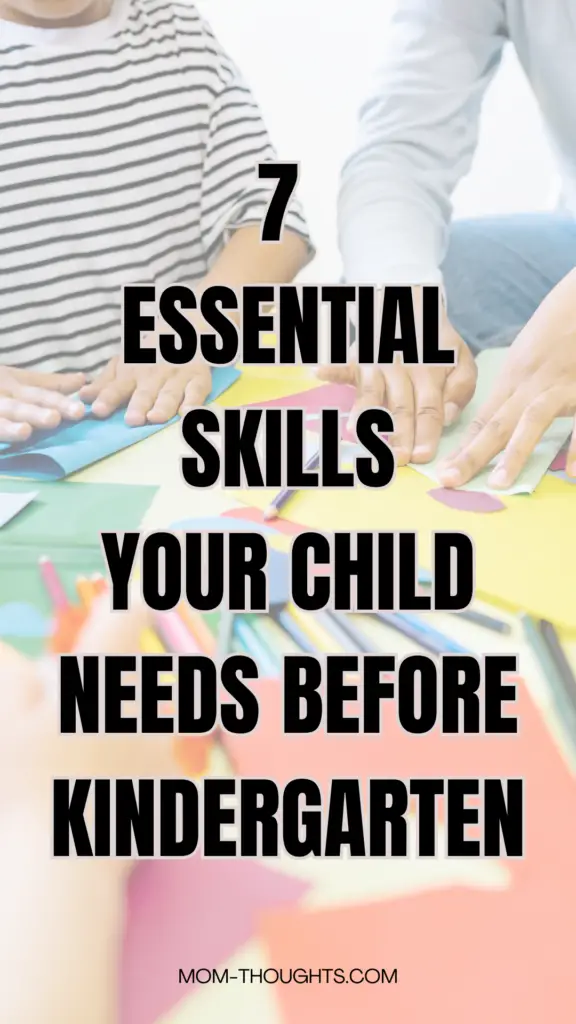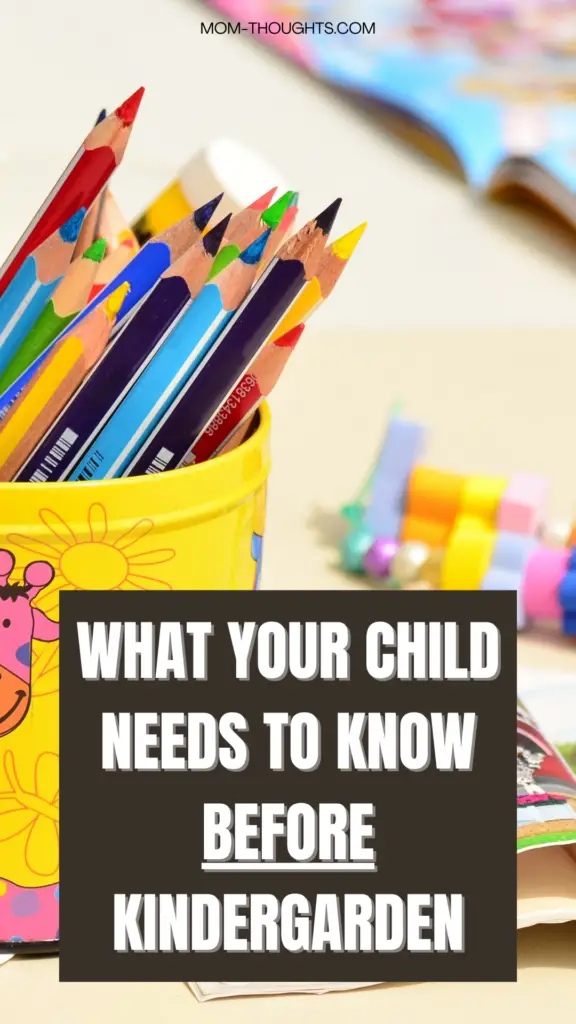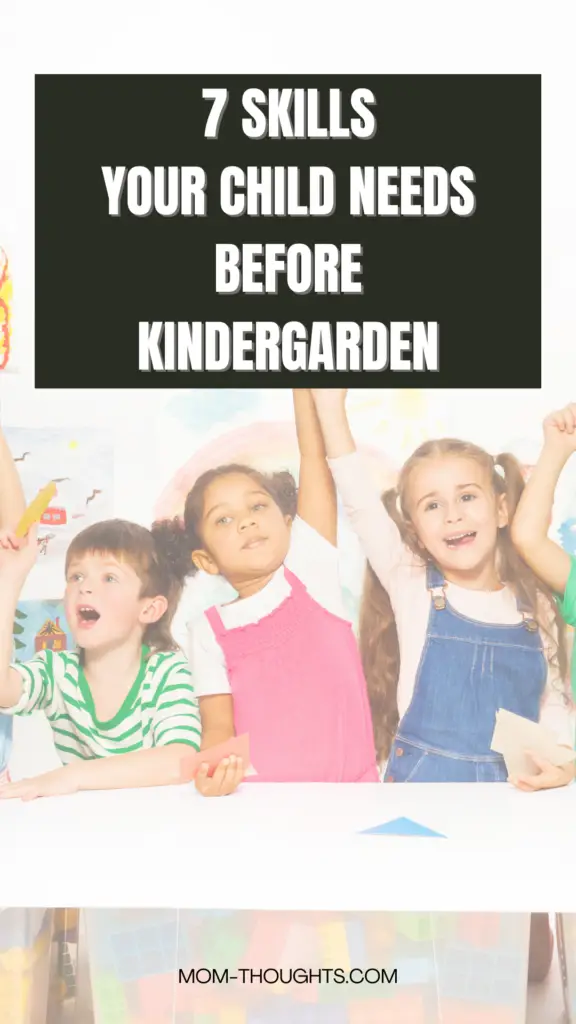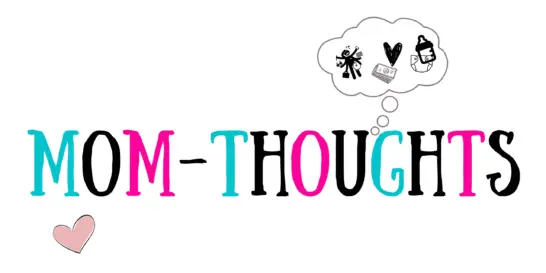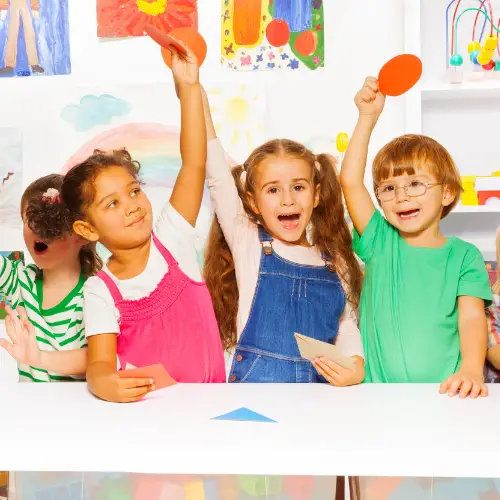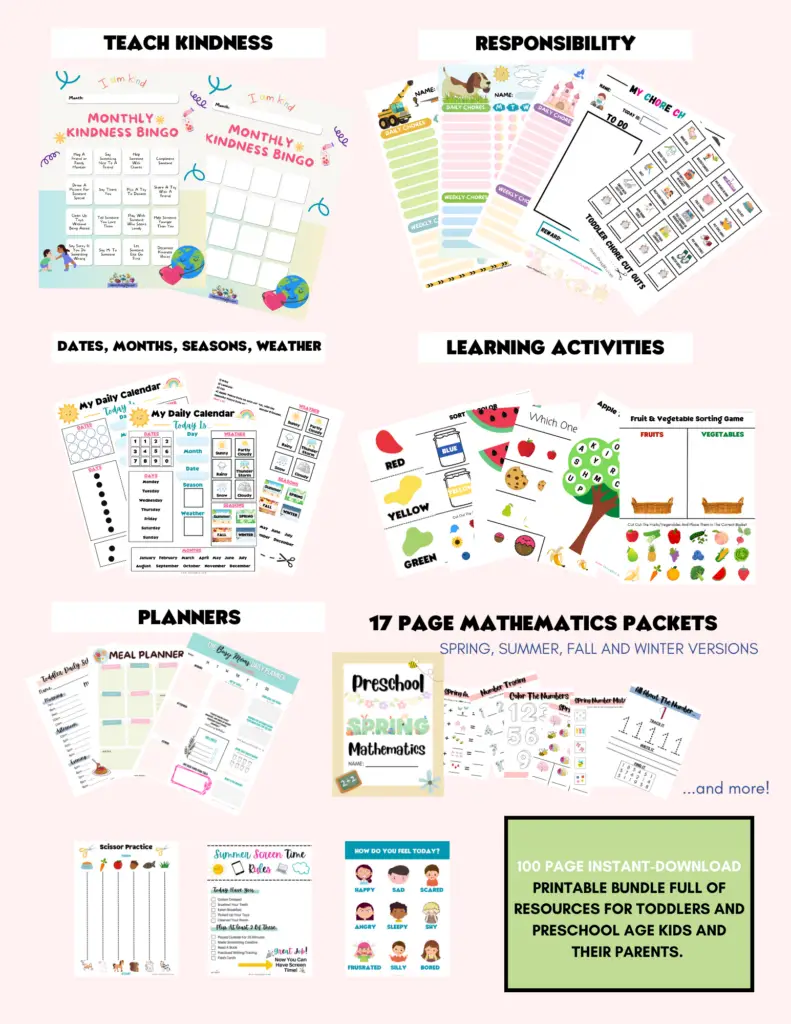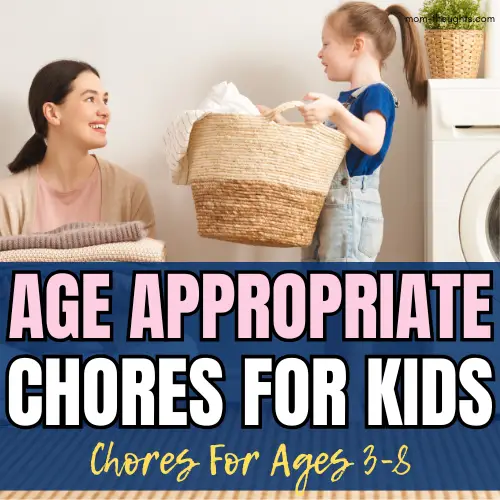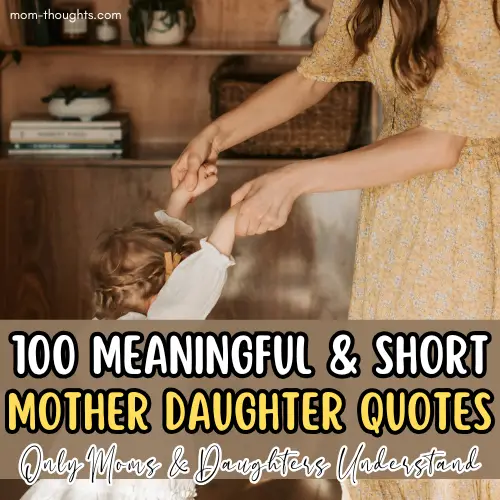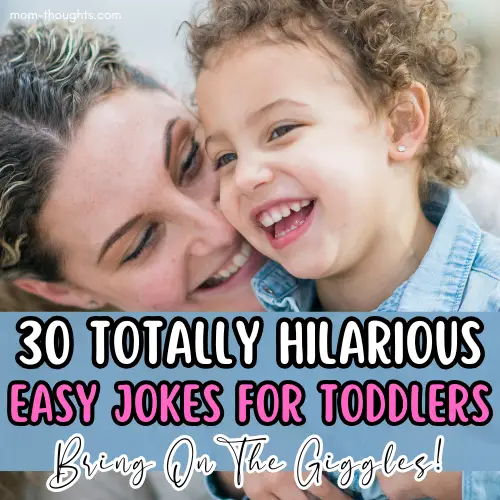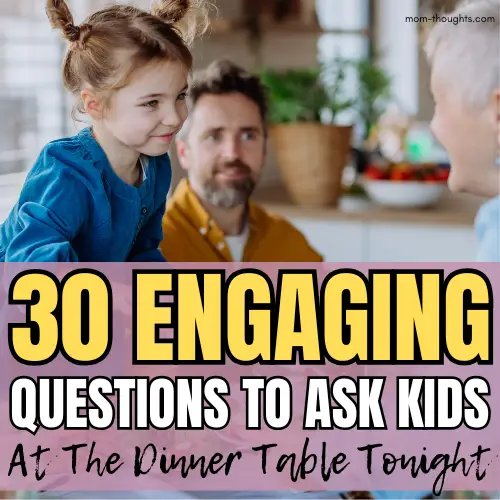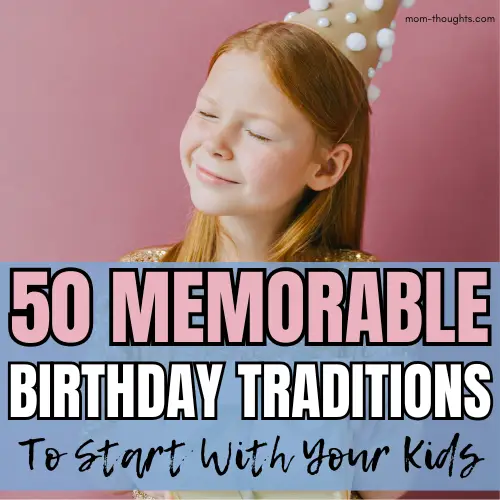This post is all about what your child should know before kindergarten.
Have you ever wondered what it takes to get your child ready for the big leap into kindergarten? As a parent, preparing your little one for this important educational milestone is crucial. But where do you start? In this article, we will delve into the seven essential skills your child must have before kindergarten, ensuring a smooth and successful transition. From social skills to pre-reading abilities, we will explore each skill in detail, providing you with a roadmap for your child’s early education journey. By honing these skills, you can equip your child with the tools they need to not only excel in kindergarten but also thrive throughout their entire educational career. So let’s dive in and discover the key abilities your child should develop to lay the foundation for educational success.
As a means for providing for my family I may earn a small commission if you purchase through the links on this page.
GET OUR PRESCHOOL/TODDLER LEARNING BUNDLE TO HELP GET YOUR CHILD READY FOR KINDERGARTEN!
100 Page Instant-Download Printable Bundle full of resources for preschool age kids and their parents!
Includes great learning activities for indoor activities, planners, chore chart options, daily learning calendar, kindness BINGO, emotions chart, mathematics packets for each season, scissor activities, and more!
What Your Child Needs To Know Before Kindergarten – 7 Essential Skills Your Child Must Have Before Kindergarten
Social Skills
Building strong social skills is essential for your child’s success in kindergarten. These skills not only help your child navigate social interactions with their peers but also set the foundation for positive relationships and collaboration throughout their educational journey.
One crucial social skill your child should develop is the ability to communicate effectively. Encourage your child to express their feelings, thoughts, and ideas using words. Teach them how to listen attentively and respond appropriately to others. By honing these communication skills, your child will be better equipped to engage in conversations, resolve conflicts, and express themselves in a respectful and assertive manner.
Empathy is another vital social skill that fosters understanding and compassion. Encourage your child to put themselves in others’ shoes, consider different perspectives, and show kindness and empathy towards their peers. This skill not only helps build strong friendships but also lays the groundwork for developing empathy and compassion as they grow into compassionate adults.
Collaboration and teamwork are also important social skills to cultivate in your child. Encourage them to participate in group activities, share ideas, and work together towards common goals. Teach them the value of compromise, cooperation, and respecting others’ opinions and contributions. By fostering a collaborative mindset, your child will be well-prepared for the cooperative learning environment in kindergarten and beyond.
Lastly, teaching your child appropriate behavior and manners is crucial for their social development. Help them understand the importance of politeness, respect, and following rules. Encourage good manners such as saying “please” and “thank you,” waiting their turn, and using polite words like “excuse me” and “I’m sorry.” These small gestures go a long way in building positive relationships and creating a respectful classroom environment.
By focusing on developing these social skills, you will support your child in becoming an empathetic, communicative, and collaborative learner. These skills will not only contribute to their success in kindergarten but also lay the foundation for their overall social and emotional well-being throughout their educational journey.
- GET KIDS READY FOR KINDERGARTEN: The activities in this kit aren’t just fun; they’re chock full of kindergarten preparation tools to help kids practice using tools like…
- ACTIVITIES THAT TEACH: With Peaceable Kingdom’s Get Ready for Kindergarten Learning Around Town, kids will learn sorting, counting and letter recognition while honing their…
- FUN LEARNING: Kids will “visit” a donut shop, post office, veterinarian office and school. Each scene has fun activities to complete, such as putting pictures in the right…
- INCLUDES: Donut shop scene, Post office scene, Veterinarian Scene, School scene, along with a guidebook with instructions for each activity.
Language Development
In addition to social skills, language development is another essential skill your child should have before entering kindergarten. Language skills play a crucial role in their overall communication abilities and academic success. By nurturing your child’s language development, you can provide them with a strong foundation for effective expression and comprehension.
Encourage your child to engage in conversation by actively listening and responding to them. Stimulate their vocabulary by introducing new words and concepts in everyday conversations. Reading together regularly is also a powerful way to enhance their language skills. Choose a variety of books that match their interests and expose them to different writing styles and genres. As you read, ask open-ended questions to prompt their critical thinking and encourage them to voice their opinions.
Another way to support your child’s language development is by incorporating storytelling into their daily routine. Encourage them to tell stories, whether it’s about their day at preschool or a fictional tale they create. This helps develop their narrative skills and fosters creativity. You can also play language-focused games, such as rhyming or word association games, to make learning fun and interactive.
Furthermore, pay attention to your child’s pronunciation and articulation. Correct any mispronunciations gently and encourage them to practice those sounds. As they develop their language skills, provide opportunities for them to engage in conversations with different people, such as family members, friends, and even strangers when appropriate. This exposure to various communication styles will strengthen their ability to adapt and connect with different individuals.
By focusing on language development, you are equipping your child with the tools they need to effectively express themselves, understand others, and participate actively in classroom discussions. These language skills will not only benefit them academically but also enhance their overall cognitive abilities and critical thinking skills.
Setting the stage for the next section on cognitive abilities, developing strong language skills will provide your child with a solid foundation for acquiring new knowledge, problem-solving, and engaging with the curriculum in kindergarten and beyond.
- Magic Practice Copybooks are much larger than other copybooks on the market. The package includes 5 magic practice copybooks for Kids (Addition,Multiplication,Numbers , Alphabet,…
- The Magic Practice Copybooks has three-dimensional groove design, The magic calligraphy paper is thick, strong, and durable, not easy to smudge and not easy to stain; the pen…
- The matching refills use magic ink,handwriting will automatically fade and disappear within 30 minutes after writing, great for repeated practice. It is a Must Have handwriting…
- The kids can use their magic pen to follow the paths and draw different shapes, great for improving their writing skills. They can also master English handwriting skills and write…
- Magic reusable calligraphy copybook set is the perfect gift for your kids ages 3-8 years old. It is suitable for all kinds of holiday gifts, such as Christmas, New Year,…
Cognitive Abilities
Developing strong language skills in early childhood not only has significant benefits for effective communication, but it also plays a crucial role in enhancing cognitive abilities and critical thinking skills. By focusing on language development, you are equipping your child with the tools they need to express themselves, understand others, and actively participate in classroom discussions.
Language skills serve as the groundwork for acquiring new knowledge, problem-solving, and engaging with the curriculum in kindergarten and beyond. As your child becomes more proficient in language, their cognitive abilities will be further stimulated, allowing them to process information more efficiently and think more critically.
When children possess strong language skills, they are better able to comprehend and analyze complex ideas, leading to improved overall cognitive functioning. Through language, they can make connections between concepts, ask thoughtful questions, and evaluate different perspectives. These abilities contribute to their success in academic settings and enhance their capacity for logical reasoning and problem-solving.
In addition to fostering cognitive development, language skills also facilitate the acquisition of new knowledge. The ability to effectively communicate and understand information enables children to actively participate in classroom activities and engage with the curriculum. They can absorb new concepts more readily and apply them in various contexts, further expanding their intellectual abilities.
By nurturing your child’s language skills in their early years, you are providing them with a solid foundation to thrive in kindergarten and beyond. As they develop strong language abilities, their cognitive capabilities will continue to flourish, enabling them to comprehend, analyze, and creatively approach educational content. These skills will seamlessly transition into other essential skills, such as fine motor skills, as your child embarks on their educational journey.
Fine Motor Skills
Fine motor skills are another crucial set of abilities that your child should develop before entering kindergarten. These skills involve the use and coordination of small muscles in their hands and fingers, which are essential for tasks like writing, drawing, cutting, and buttoning clothes. Developing strong fine motor skills not only prepares your child for the academic demands of kindergarten but also helps them gain independence and self-care skills.
Building fine motor skills involves various activities that engage the muscles in your child’s hands and fingers. Simple tasks like playing with blocks, picking up small objects, and manipulating toys can greatly contribute to the development of these skills. As your child progresses, they can also benefit from activities such as coloring, using scissors to cut shapes, and threading beads onto a string.
The development of fine motor skills not only enhances your child’s ability to perform tasks that require hand-eye coordination but also supports their cognitive development. By mastering these skills, children learn to concentrate, solve problems, and think creatively as they manipulate objects and engage with their environment. These abilities will prove invaluable as your child navigates through the academic challenges they will encounter in kindergarten and beyond.
Moreover, strong fine motor skills also play a significant role in fostering independence and self-care. As your child becomes more adept at using their hands and fingers, they can gradually learn to dress themselves, tie shoelaces, brush their teeth, and feed themselves with utensils. These daily activities not only promote a sense of accomplishment and self-reliance but also develop essential life skills that will serve your child well throughout their educational journey.
Through the development of fine motor skills, your child will not only be better equipped for the academic demands of kindergarten but will also gain independence and self-care abilities. As they become more proficient with these skills, they will be able to actively engage in classroom activities, manipulate educational materials, and express their ideas through writing and drawing. Next, let’s explore the importance of independence and self-care skills in preparing your child for kindergarten.
Independence and Self-care
Moreover, strong fine motor skills also play a significant role in fostering independence and self-care. As your child becomes more adept at using their hands and fingers, they can gradually learn to dress themselves, tie shoelaces, brush their teeth, and feed themselves with utensils. These daily activities not only promote a sense of accomplishment and self-reliance but also develop essential life skills that will serve your child well throughout their educational journey.
Through the development of fine motor skills, your child will not only be better equipped for the academic demands of kindergarten but will also gain independence and self-care abilities. As they become more proficient with these skills, they will be able to actively engage in classroom activities, manipulate educational materials, and express their ideas through writing and drawing. This level of independence will not only boost their confidence but also allow them to fully participate in various learning opportunities.
With independence and self-care skills, your child will also be better prepared for the social aspects of kindergarten. They will have the ability to take care of their own needs, such as using the bathroom and managing their belongings. This will empower them to navigate the classroom environment more seamlessly and contribute to a positive and inclusive classroom culture.
Moreover, as your child learns to dress themselves, tie their shoes, and brush their teeth independently, they will understand the importance of personal hygiene and self-care. These skills will contribute to their overall well-being and positively impact their physical health.
Next, let’s explore the importance of independence and self-care skills in preparing your child for kindergarten, as they form a crucial foundation for understanding basic math concepts.
Basic Math Concepts
Next, let’s delve into the realm of basic math concepts – an essential skill set that plays a pivotal role in preparing your child for kindergarten. As your child continues to develop independence and self-care skills, they simultaneously lay the groundwork for understanding fundamental mathematical principles.
Through tasks such as sorting toys, organizing objects by shape or size, and counting everyday items like buttons or crayons, your child begins to grasp the concept of categorization and quantity. These seemingly simple activities foster critical thinking and problem-solving abilities, setting the stage for more complex mathematical reasoning later on.
Basic math concepts extend beyond counting and sorting, encompassing the building blocks of number recognition and numeracy. By introducing your child to numbers and their corresponding symbols, you help them establish a solid foundation for arithmetic operations. Whether it’s identifying numbers on a clock face or recognizing numerals on a page, these early encounters forge connections between real-world objects and their numerical representation, paving the way for fluency in mathematical language.
Furthermore, engaging your child in hands-on experiences with shapes and patterns cultivates spatial awareness and visual thinking. By identifying shapes in their environment, manipulating blocks to create patterns, and exploring symmetry, children develop an innate sense of geometry and spatial relationships. These skills not only enhance their logical reasoning but also facilitate a deeper understanding of mathematical concepts later on.
Incorporating basic math concepts into your child’s daily routine not only prepares them for kindergarten but also fosters a love for numbers and problem-solving. As we proceed to explore the significance of pre-reading skills, it’s important to recognize that these early mathematical foundations seamlessly intertwine with the development of language and literacy.
- Magnetic Ten-Frame Set: There are 6 different colors of Ten-Frame boards, and 10star-shape counters of each color(green, purple, red, yellow, blue, and orange; which is 60 counters…
- Early Mathematical Sense: A strong sense of ‘ten’ is a prerequisite for place value understanding and mental calculations. Solving math problems within the ten-frame by adding…
- Hands-on Math Manipulative: The Ten-Frames are visualization tools that can use for computation, algebraic reasoning, skip counting, patterns, multiplication, and addition/…
- Visualize Arithmetic Concept: The frames are sturdy and magnetic that will stick onto a metal door or refrigerator. Kids can put magnets on and not worry about the pieces moving…
- Perfect Homeschool Supplement: Magnetic Ten-Frame is a helpful teaching aid. It can be used for grouping, sorting, place value, etc. Teaching early math sense, addition, and more…
Pre-reading Skills
Furthermore, engaging your child in hands-on experiences with shapes and patterns cultivates spatial awareness and visual thinking. By identifying shapes in their environment, manipulating blocks to create patterns, and exploring symmetry, children develop an innate sense of geometry and spatial relationships. These skills not only enhance their logical reasoning but also facilitate a deeper understanding of mathematical concepts later on.
Incorporating basic math concepts into your child’s daily routine not only prepares them for kindergarten but also fosters a love for numbers and problem-solving. As we proceed to explore the significance of pre-reading skills, it’s important to recognize that these early mathematical foundations seamlessly intertwine with the development of language and literacy.
Pre-reading skills are an essential part of your child’s early education and growth. Even before they start kindergarten, these skills lay the foundation for a successful learning journey ahead. Pre-reading skills encompass a broad range of abilities that help children develop language, comprehension, and critical thinking skills.
One crucial pre-reading skill is phonemic awareness. This skill involves the understanding and manipulation of individual sounds, known as phonemes, in spoken words. Activities such as rhyming games, identifying the beginning or ending sounds of words, and blending sounds together can strengthen their phonemic awareness. By honing this skill, children become better equipped to recognize and manipulate sounds in written language, which is a crucial element in learning to read.
Another important pre-reading skill is vocabulary development. Building a strong vocabulary is essential for children to understand and express themselves effectively. Parents can help by engaging in conversations with their child, exposing them to a wide range of words, reading books together, and playing word games. The more words they encounter and understand, the more they will be able to comprehend written text and communicate their own thoughts and ideas.
Additionally, developing print awareness is crucial for pre-reading skills. This includes understanding the concept of print, such as knowing that printed words hold meaning, recognizing letters and words, and understanding basic conventions of written language. Introducing your child to books, pointing out letters and words in their surroundings, and even encouraging them to “read” their favorite stories aloud can help them develop these print awareness skills.
Lastly, comprehension skills play a vital role in pre-reading development. Children need to be able to understand and make meaning from the text they read or hear. Engaging in conversations about books, asking open-ended questions, and encouraging them to make predictions or connections to their own experiences can enhance their comprehension skills. By actively engaging in discussions and reflecting on what they read, children develop critical thinking abilities and a deeper understanding of the content.
In summary, pre-reading skills are integral to your child’s overall development and success in kindergarten and beyond. By nurturing their phonemic awareness, vocabulary, print awareness, and comprehension skills, you are setting a strong foundation for their literacy journey. These skills not only support their reading abilities but also strengthen their communication skills, critical thinking, and overall cognitive development. As we delve further into the importance of these skills, it becomes clear that investing time and effort in fostering pre-reading skills is a wise decision that will benefit your child in various aspects of their academic and personal growth.
Conclusion
In conclusion, when determining what your child needs to know before kindergarten, it goes beyond choosing the right backpack or outfit. It involves nurturing the essential skills they need to thrive academically and socially. By focusing on social skills, language development, cognitive abilities, fine motor skills, independence and self-care, basic math concepts, and pre-reading skills, you can provide a strong foundation for their educational journey. Remember, it’s not just about getting them ready for kindergarten—it’s about equipping them with the tools they need to succeed in school and beyond. So, take the time to engage your child in activities that promote these skills, and watch them flourish. As the saying goes, “The roots of education are bitter, but the fruit is sweet.”
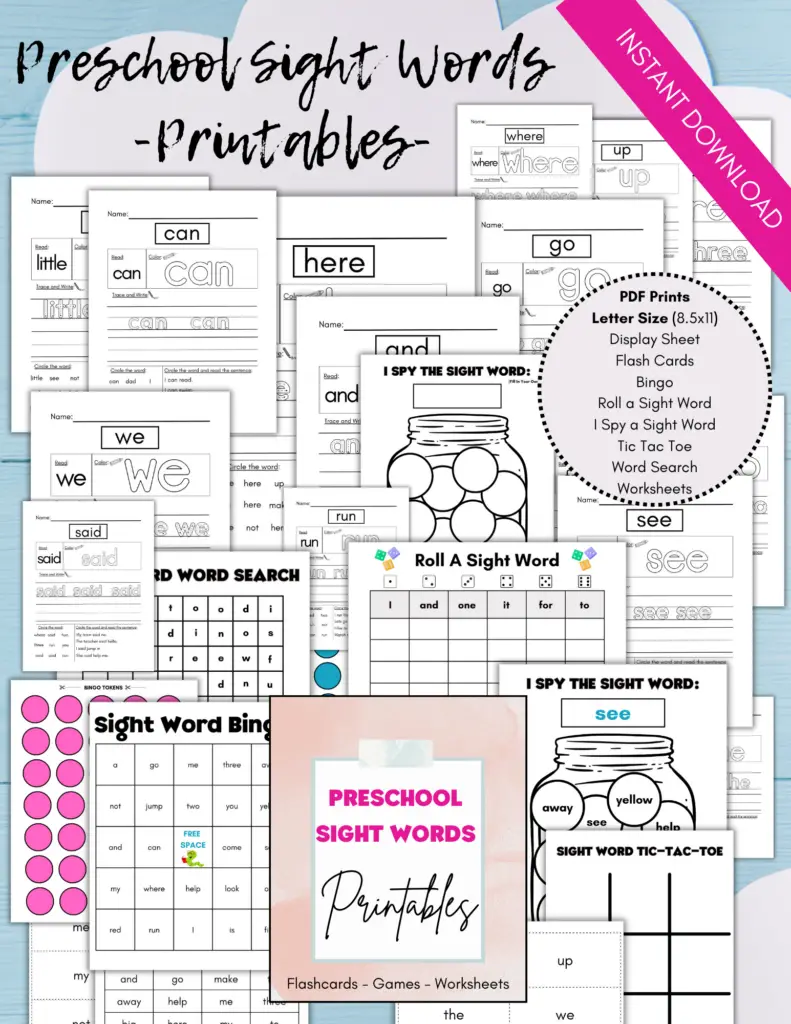
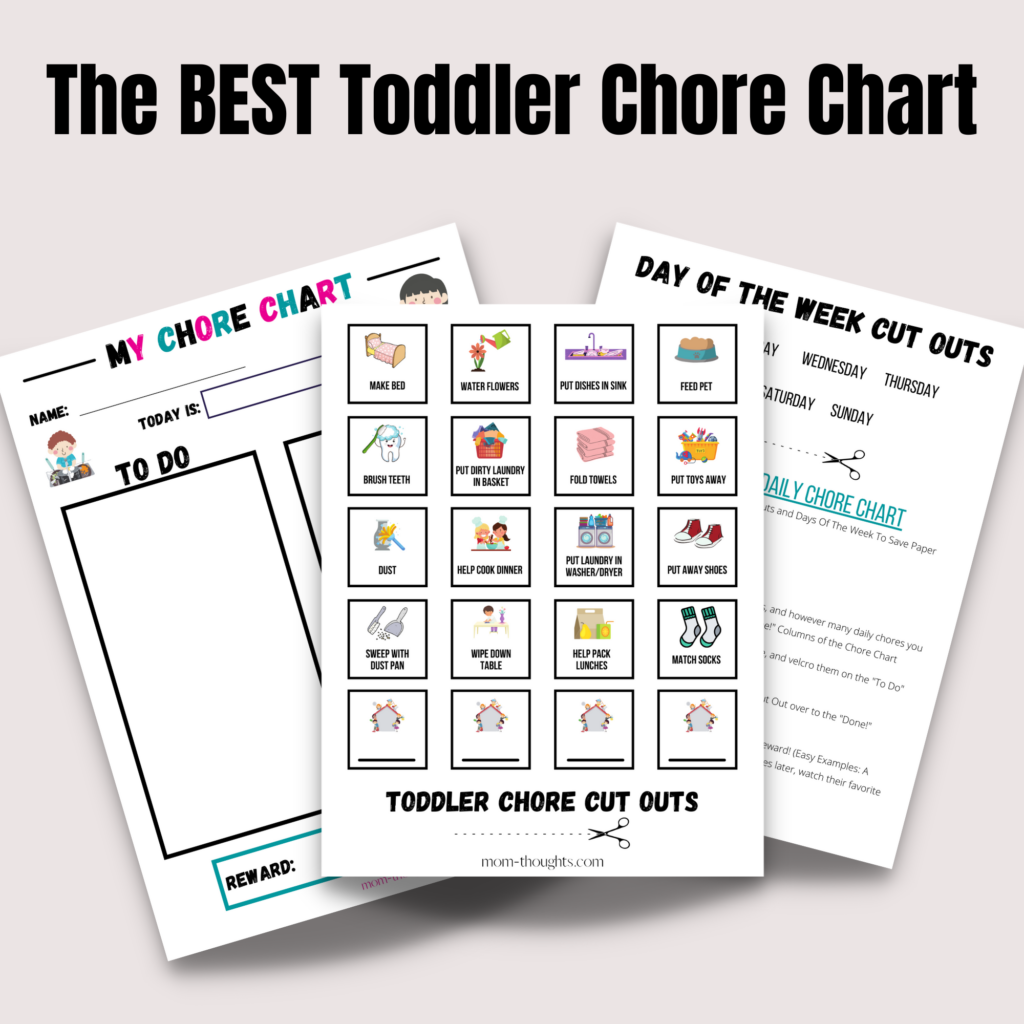
MORE POSTS YOU’LL LOVE:
25+ Fun Easter Activities for Kids to Do at Home
This post is all about Easter activities for kids. Fun Easter Activities for Kids (Preschool…
Age Appropriate Chores for Kids: What Kids Ages 3–8 Can Do
This post is all about age appropriate chores for kids. Teaching kids how to help…
100 Meaningful Short Mother Daughter Quotes
This post is all about short mother daughter quotes. Short Mother Daughter Quotes That Will…
30 Easy Jokes For Toddlers That They’ll Find Hilarious!
This post is all about easy jokes for toddlers. Easy Jokes For Toddlers To bring…
30 Questions to Ask Kids at Dinner That Spark Real Conversations
This post is all about questions to ask kids at dinner. Questions To Ask Kids…
50 Special Birthday Traditions For Kids
This post is all about birthday traditions for kids. Fun Birthday Traditions For Kids To…
